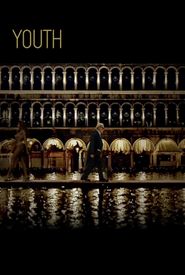Stephen Woolley is a renowned English film producer and director, with a career spanning over four decades. He has been recognized for his outstanding contributions to cinema, receiving the BAFTA award for Outstanding British Contribution to Cinema in 2019. Woolley has produced numerous Oscar-nominated films, including Mona Lisa, Little Voice, Michael Collins, The End of the Affair, Interview with a Vampire, Carol, and Living.
Woolley's career began in 1976 as an usher at London's art-house cinema, The Screen on the Green. He later joined The Other Cinema and eventually owned and ran his own groundbreaking repertory cinema, The Scala Cinema. In the early 1980s, he established Palace Video with Nik Powell, distributing cult cinema and international art films.
Palace Video released a range of cult classics, including David Lynch's Eraserhead, Derek Jarman's The Tempest, and Werner Herzog's Fitzcarraldo. The company later grew into a theatrical distribution company, Palace Pictures, which released films by directors such as John Cassavetes, John Waters, Mike Leigh, Ken Loach, and Peter Greenaway.
Woolley produced his first feature film, The Company of Wolves, in 1984, directed by Neil Jordan. He went on to establish an association with Miramax, which distributed several Palace Pictures films in the United States.
After the closure of Palace Pictures in 1992, Woolley and Powell founded Scala Pictures, producing a range of low-budget UK features. Simultaneously, Woolley made three Studio pictures with Warner Brothers and collaborated with Neil Jordan on several projects.
In 2002, Woolley set up Number 9 Films with his partner Elizabeth Karlsen. Their films include When Did You Last See Your Father, Breakfast on Pluto, How to Lose Friends and Alienate People, Made in Dagenham, Byzantium, Great Expectations, Hyena, Their Finest, Carol, Youth, The Limehouse Golem, On Chesil Beach, Mothering Sunday, and Living.
Woolley made his directorial debut with the 2005 biopic Stoned, and has received numerous awards and nominations for his work, including the PGA Award for the Crying Game.

























